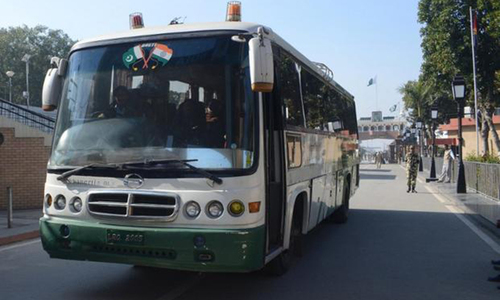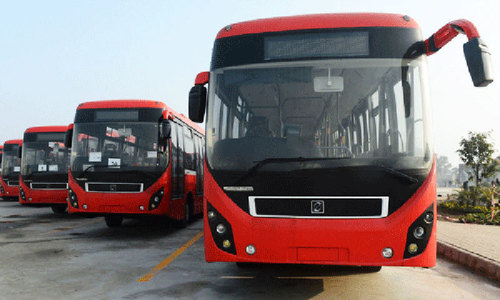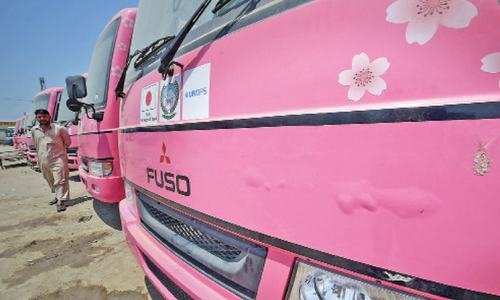PESHAWAR: The TransPeshawar Company tasked with overseeing the Peshawar Bus Rapid Transit project has selected the privately-owned Daewoo Pakistan firm for bus operation at one of the two terminals.
The decision about the other terminal will be made afterwards.
A statement issued here said the TPC board had accorded formal approval to the Daewoo Pakistan company’s selection in the bidding process.
Private firm selected for operations at one terminal
The Daewoo Pakistan, which is one of the biggest transport companies in the country, has been tasked with running operation of 128 buses from Chamkani bus depot, which is currently under construction near the Chamkani area of the city.
“These include 93 numbers of 12-meter buses, 35 number of 18-meter buses and facilitating passengers on main routes and two feeder routes,” it said.
According to the TPC, the vehicle operating company is one of key components in executing the operation of any BRT system and that operating the BRT is a complex system globally and was usually executed via outsourcing to specialised operators.
The TPC will hire two key service providers for the operation of BRT, including VOC and system control and good services.
The VOC service provider and operator in Peshawar BRT system (also referred as Zu BRT) will be responsible for fueling of buses, maintenance of buses, the hiring of drivers and allied staff and their training to ensure smooth bus operation.
The TPC said the Daewoo Pakistan was selected based on the competitive process as per KP Public Procurement Regulatory Authority rules.
“In 12th board meeting of TPC, the members unanimously approved the Daewoo Pakistan Express Bus Service Limited, as an operator for Chamkani Depot,” it said, adding besides running its intercity bus services across Pakistan, the private firm is also operating Multan metro and Feeder Routes for Lahore metro.
The TPC said two depots, Chamkani and Hayatabad are constructed for Peshawar BRT and will be equipped with facilities for fueling, cleaning, vehicle maintenance workshops with routine spare parts for Zu buses while TPC will share bus trip schedule and service provider will operate accordingly.
It said BRT operators are usually paid on basis of per kilometer of buses run, that becomes one of the key factors in its selection beyond other factors such as company experience, credentials, and capacity to handle such operation.
The Peshawar BRT has finalised a rate of Rs177 per kilometer. The operator will be paid on basis of a number of kilometers run by all their buses in a month. The duration of the contract with Daewoo Pakistan Express Bus Service is 12 years.
“We have built-in penalties in the contract to safeguard the best interest of Zu passengers including financial penalties against behavioral issues and non-compliance with key performance indicators (KPIs),” the company said.
Sources told Dawn that the earlier in May, the TPC had selected three companies during the bidding process and they included Platform Turizm Tasimaclik Gida Insaat Temizilik, Daewoo Pakistan and joint venture of Camapk Temizilik and Gur-sel Turizm Tasimacilik Ve Servis Ticaret a.s.
The joint venture of Campak Temizilik and Gur-sel Turizm had submitted the lowest bid of Rs139 per kilometer and was declared the lowest bidder to claim the contract.
However, sources said after studying the Peshawar BRT model, the Turks realised that they won’t be able to successfully operate the bus service at the rate earlier offered to the TPC.
“After realising their mistake, the Turks did not look back and even stopped responding to the TPC’s official emails,” a source said, adding that the Rs10 million security deposited by the Turkish company would be forfeited.
Published in Dawn, October 4th, 2018














































